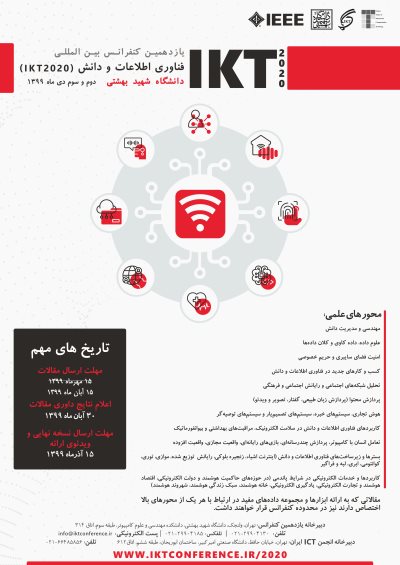0% Complete
Authors :
Keywords :
Abstract :
List of archived papers
دکتر محمد ابراهیم سمیع - ساره رحمانیان محمد ابراهیم سمیع - ساره رحمانیان -
علی کوشاری - مهدی فرتاش
Nargess Vafaei - Dr Mohammad Reza Keyvanpour
Arman Sepehr - Mohammadzaman Zamani - Hamid Beigy - Shabnam Behzad
Somayeh Ashourian - Shohreh َAjoudanian
Sina Omidvar - Jamshid Shanbehzadeh
پروا کلیبری - کریم صمدزمینی
مهدیه طالب زاده - هاله امین طوسی - محمد اله بخش
راضیه گنجی - دکتر محسن ابراهیمی مقدم - دکتر رامین نوری نیا




